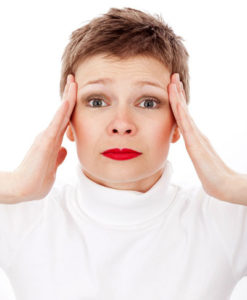 Exercise relieves stress
Exercise relieves stress
Physical activity plays a vital part in relieving stress and protecting us from its harmful effects, such as problems with histamine. Use movement to relieve stress, instead of junk food.
As a bonus, exercise promotes muscles growth. The benefits are many, whether your exercise is intense or moderate.
Vigorous exercise
When you exercise vigorously your cortisol levels rise temporarily. (Your body is primed with cortisol to help you – for example, in case the reason you’re running is because you’re escaping from danger or chasing food.)
Despite this natural rise in cortisol, vigorous physical activity can protect the body from the harmful effects of chronic psychological and physical stress.
Intense exercise like running, fast bicycling or swimming, boxing, aerobics or vigorous dancing releases tension and stimulates the release of those “feel-good” chemicals in the body that not only lower stress levels but also help to curb excessive appetite.
Moderate exercise
When you exercise moderately, on the other hand, your cortisol levels drop. Some examples of low-intensity exercise include gardening, walking, slow bicycling, housework, tai chi and yoga. Experts say we should aim to walk 10,000 steps per day. These days we can buy step-counting devices to wear on the body.
“Physical exercise is beneficial to mental health,” concluded the authors of a 2011 study involving more than 7,000 people. [J Psychosom Res. 2011 Nov;71(5):342-8. doi: 10.1016/j.jpsychores.2011.04.001. Epub 2011 May 18. Physical exercise in adults and mental health status findings from the Netherlands mental health survey and incidence study (NEMESIS). Ten Have M1, de Graaf R, Monshouwer K.]
What’s the best exercise?
There are many different kinds of exercise to choose from, but by far the best are those that you ENJOY. If you don’t enjoy it, you are unlikely to keep doing it. Some people say there is no exercise they enjoy doing. Here are some tips:
- join a group or exercise with a friend. Socializing makes exercising more fun.
- Dance to music. Think you can’t dance? Who cares! Find yourself a private space and dance alone, where no-one else can see you. Play your favorite music. Turn up the volume and go wild. Dance is exercise that’s usually accompanied by music, so it combines the stress-relieving benefits of movement with the stress-relieving benefits of melody and rhythm.
What does exercising cost?
You don’t have to spend a lot of money on gym memberships to get exercise – your body is right with you all the time, and all you need to do is get up and move it. Exercise is free.
How often should I exercise?
We recommend that you move your body for at least 30 minutes, three times per week.



